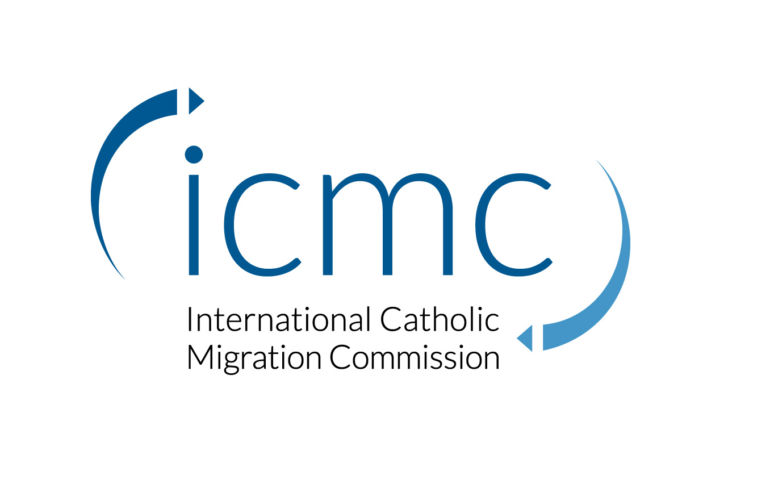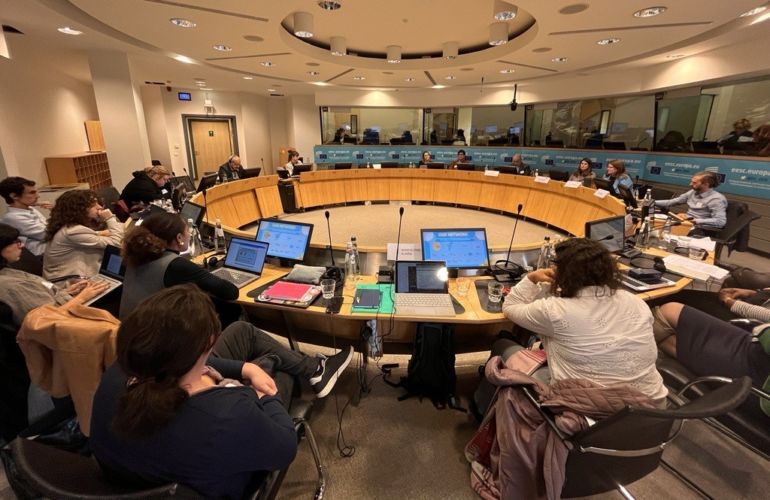The SHARE Network: Building Bridges Between Policy and Practice
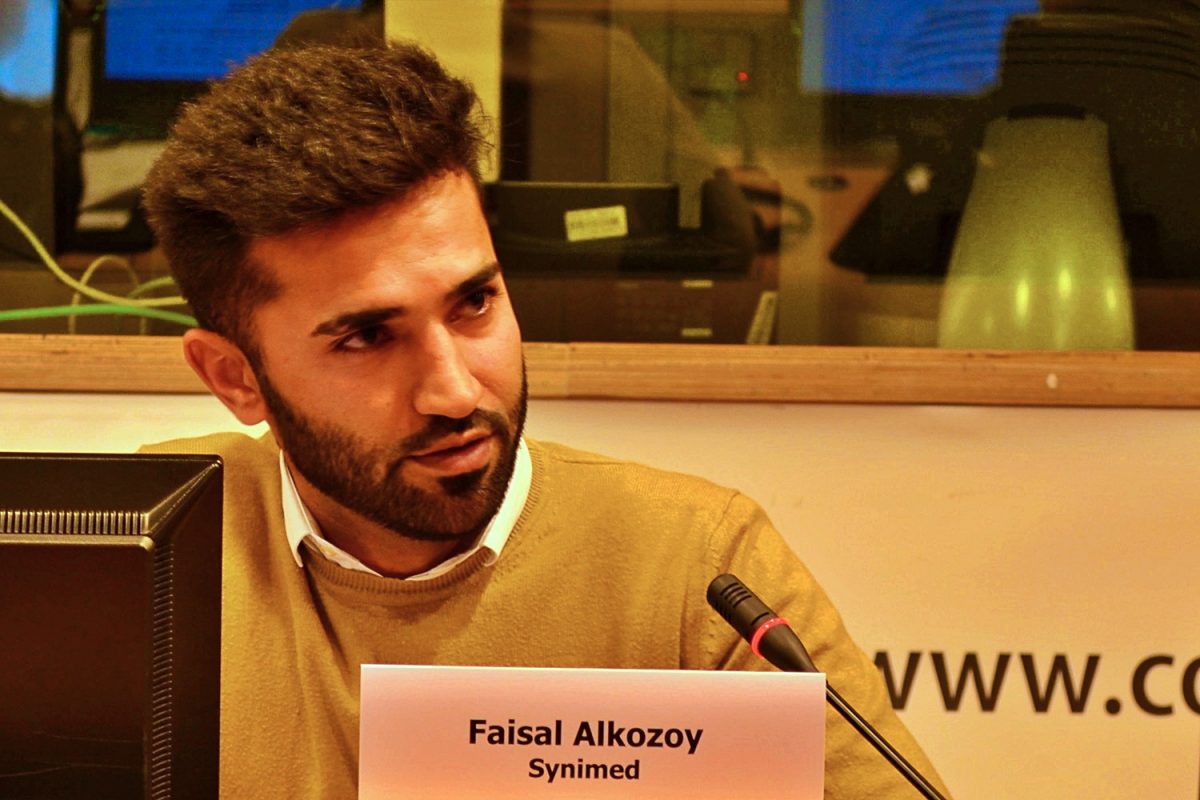
With global refugee resettlement needs at an all-time high and global resettlement efforts at an all-time low, European leadership in this field is becoming increasingly important. Assessing the EU response and sharing best practices in refugee resettlement and in complementary admission pathways were at the center of a conference in Brussels.
Over 140 representatives from 20 countries, including regional and local authorities, civil society organizations, refugee-led organizations and refugee leaders as well as national governments, international organizations and European institutions gathered in Brussels on 21-22 October 2019 for the SHARE Network Conference “Expanding Resettlement across Europe: From Policy to Practice.”
The conference offered an opportunity to highlight efforts made by European countries within a program to resettle 50,000 refugees in Europe by the end of 2019. This is the largest joint European effort to date, with nearly 35,000 persons (70% of the target) resettled by September 2019.
The SHARE Network has worked with European countries over the past two years to expand resettlement and complementary admission pathways for refugees. Its approach is to expand welcome from the bottom up, reaching out to local communities across Europe to engage in or expand local welcome and integration programs. To this end, SHARE has developed modules to offer training to local communities implemented in nine countries over the past year.
The multi-stakeholder approach, bringing together so many actors from so many different levels, is what makes the SHARE Network – established in 2012 and led by the Europe office of the International Catholic Migration Commission (ICMC) – so unique.
“Civil society can influence how governments work and together, we can develop good practices,” said Mark Wiggins from Caritas Salford in the UK, a SHARE Network partner organization. “That is why the SHARE Network is so important: it provides a safe space that you can trust and where you can share your practices, your successes, but also your failures,” he added.
“Without the help of civil society, there is no chance of succeeding in the integration of refugees”, said Laurent Thieule from the European Committee of the Regions, a European institution representing regional and local authorities, in his opening address.
Assessing European Union Resettlement Efforts
Annikki Vanamo-Alho from the Finnish Ministry of the Interior said that Finland “would like to see more EU countries resettling refugees and the countries that already do it increasing the numbers.” She explained that her country has recently upped the number of resettlement places available and that resettlement is a priority for the Finnish Presidency of the Council of the European Union in 2019.
Laura Corrado from the European Commission highlighted that with the 50,000 program coming to an end by the end of 2019, it is time to plan ahead. She revealed that 15 EU Member States have already committed to collectively receive 30,000 refugees through the resettlement program in 2020. This move was warmly welcomed by civil society organizations.
In a statement released on 31 October 2019, 22 civil society organizations including ICMC have urged EU Member States to ensure that the 30,000 resettled refugees will effectively arrive in 2020. This must in turn lead to a steady increase in resettlement efforts by the European Union in the years to come.
The success of resettlement as a durable solution depends on the extent to which refugees are successful in creating a new life in the country that receives them. Alain Régnier, the official in charge of refugee integration for the French government, highlighted the importance of taking into account the specificities of each person’s resettlement and integration journey.
“The structures we have in place should be adapted to the profile of each individual we welcome in our country”, he said, reassuring the audience that France will reach its target of 10,000 people resettled by the end of 2019.
Different countries face different challenges in fulfilling their resettlement commitments. For Portugal, the onwards movement of resettled refugees to other countries is a major issue.
“We cannot say for sure why people move on, but many of them have family or relatives in other European countries and want to join them,” explained Vasco Malta, from the Portuguese High Commissioner for Migration. “We are working hard to improve on this front and to make sure that people want to stay and can earn a living in Portugal.”
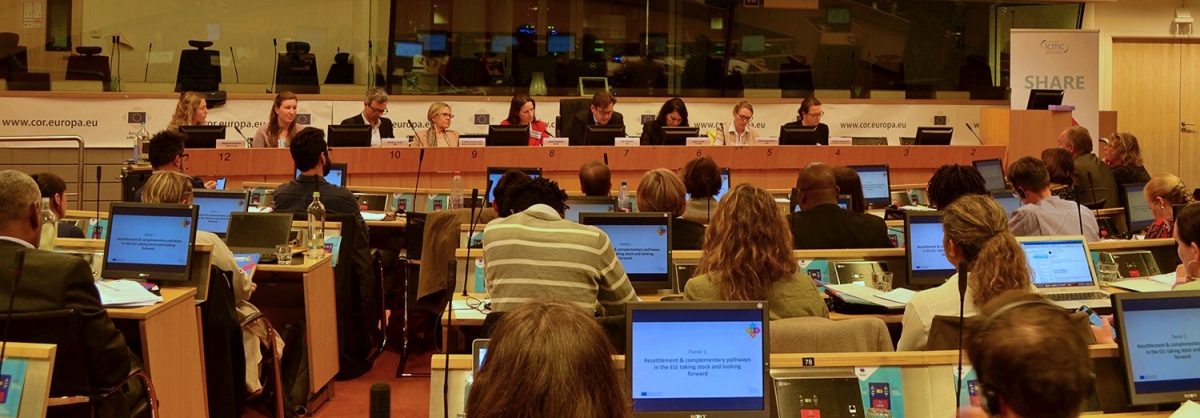
Gisela Andersson, from Kronoberg County in Sweden explained that due to legislative changes, all municipalities in Sweden are now receiving refugees. Most have positive experiences with resettlement and have invested in better integration programs. Overall asylum numbers in Sweden have decreased since 2016, explained Andersson, but many municipalities now are asking to receive higher numbers.
Monica Hernando Porres from the regional Basque Government in Spain shared the region’s experience with a pilot private sponsorship program which welcomed five families in 2019. Regions have a crucial role to play in coordinating refugee integration, she said.
Community-Based Sponsorship Programs
Private or community-based sponsorship was also a key theme of the SHARE conference. Participants shared different experiences from the Italian humanitarian corridors to Ireland’s resettlement of a Syrian family through a sponsorship group in Wicklow to the new if slow developments around private sponsorship in Germany.
All agreed on the need to not instrumentalize private and community sponsorship efforts. That is, they need to remain complementary pathways, representing additional efforts to governmental resettlement channels and regular asylum procedure.
Maya Perlmann from ICMC Europe and Leila Bodeux from Caritas Europa presented the SHARE study “Fostering community sponsorships across Europe” released earlier in October.
The publication analyzes three models of community sponsorship from extended family reunification to humanitarian corridors through community sponsorships. It shows the transforming potential of community sponsorships in mobilizing and involving local communities and in creating more tolerant and inclusive societies, fostering a more positive view of migration.
Resettlement in Smaller Communities
The role of smaller communities and rural areas was another focus of the conference. “The potential of local communities is largely untapped,” explained Petra Hueck, Director of ICMC Europe. “In France alone, there are 33,000 municipalities. Can you imagine what would happen if all municipalities in Europe hosted just one refugee every two years?”
“I like to live in a small place where we all know each other. It means that when there is a problem or a need, I immediately know whom to call”, says Anca Pascui from Somcuta Mare, a small rural municipality in Romania
Pascui got involved with refugees since 2006. She organizes activities and encounters for high school students and refugees. Pascui is featured in the Romanian episode of the new SHARE Network video series, Small Places, Great Hearts. The series celebrates the benefits of receiving refugees not only for them, but also for hosting communities.
Matthieu Tardis from the French think-tank IFRI presented the recently published research report “Another story from the refugee crisis.” Developed to support SHARE’s work in strengthening capacity of smaller municipalities and rural areas, the report underlines the positive experiences of rural communities in resettling refugees in France.
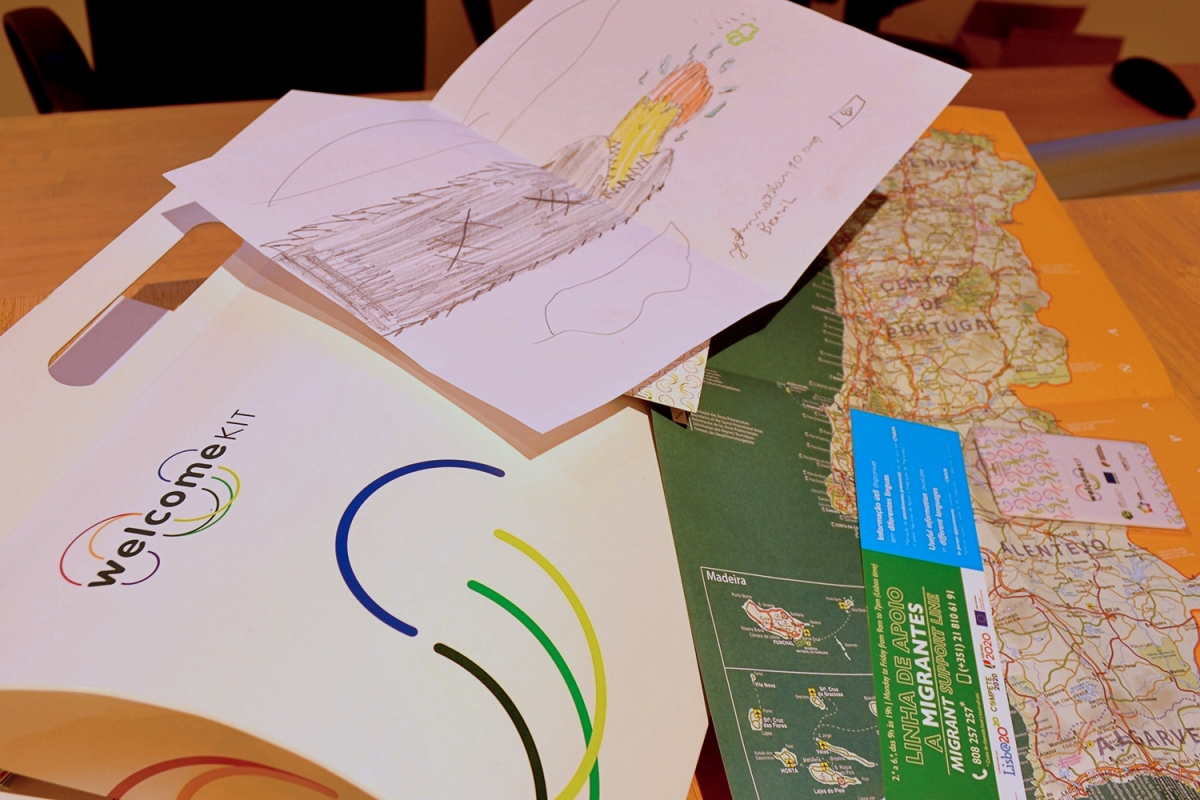
Faisal Alkozoy, an Afghan refugee who participated in the IFRI study, gave his personal testimony on being welcomed in a small town. “The war I never chose forced me to leave my country,” he explained. After a long journey, he arrived in France. “It was hard at the beginning, being without my family, but after a while I managed to integrate into the society. The mayor of the small city welcomed me very well and that helped a lot.”
With Refugees, for Refugees
Alkozoy also spoke about the necessity of engaging more refugees in organizations working for refugees. “Right now, there are mostly French people and while that is good, it is not enough. Refugees would be better able to understand the struggles of fellow refugees.”
Akoi Bazzie from the British Refugee Council agreed on the need to involve refugees more. Their “experience-based expertise” is of absolute benefit to any organization, he said.
“From talking about refugees to working with them to having refugees’ direct input into the work we do to having refugees as leaders in the organization – there is much to improve for all of us,” he urged the audience. “Just ask yourself this question: Is someone representing the community you are working for on the board of your organization?”
A Long Way Ahead
“Coming together gives us hope,” concluded Petra Hueck, Director of ICMC Europe. “We have to keep sharing and inspiring each other in the coming years. We firmly believe in multi-stakeholder cooperation and that we need to continue working on the many issues we have been discussing together over these past two years. And we will continue doing so.”
